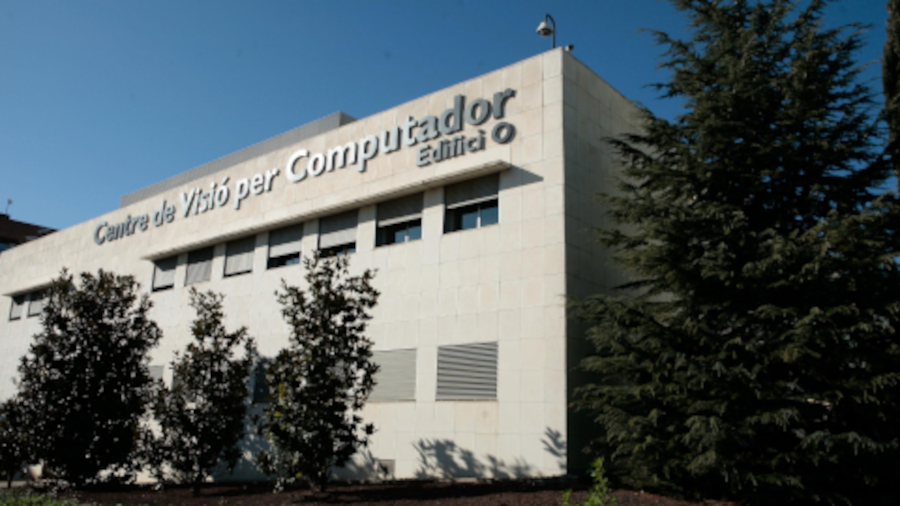CVC's Automatic driving simulator CARLA awarded National Research Prize

The Computer Vision Centre (CVC) and the Intel Intelligent Systems Lab were recently awarded the National Research Prize in the category of R+I public-private partnership for the joint development of the non-profit, open source code simulator CARLA, to train and validate autonomous vehicle systems.
28/04/2022
The Government of Catalonia and the Catalan Foundation for Research and Innovation (FCRi) awarded this year's National Research Prize in the category of public-private partnershipto a collaboration between Intel Intelligent System Lab and the Computer Vision Centre (CVC) for the development of CARLA, an autonomous vehicle research simulator.
CARLA is a non-profit, open-source code simulator designed for the development, training, and validation of autonomous vehicle systems. Its objective is to guarantee the safety of future self-driving cars in all types of situations, as well as democratise the research conducted on autonomous vehicles, thus becoming a powerful and useful tool in this field for researchers and companies across the globe. CARLA was first created in 2016 at the CVC, with funding and support from INTEL Intelligent Systems Lab. Currently, with a new joint innovation lab model, the initiative is led by Dr German Ros, director of the Autonomus Agents Lab at Intel and by Dr Antonio M. López, CVC/UAB researcher and ICREA Acadèmia lecturer at the UAB Department of Computer Science.
The need to find alternatives to the difficulty of manually jotting down all visual information when compiling data for the development of self-driving car systems was what spurred the creation of CARLA, as well as the need to test the systems in a closed loop. CARLA provides a set of open online resources (urban designs, buildings, vehicles, etc.), and the simulation platform accepts a multitude of driving scenarios, light and meteorological conditions, and complete control of all static and dynamic agents, a generation of maps and many other elements. Thus, this virtual environment allows users to prepare all kinds of situations for the autonomous vehicles to learn how to react to each one of them. The use of a realistic simulator such as CARLA with which to train self-driving cars helps to reduce the physical limitations and risks entailed in training them in the real world (such as a city), as well as substantially reducing resources, time and costs.
From the very beginning, CARLA was developed with the idea of making it a free access and open tool available to large and emerging businesses, research centres, universities and individuals from around the world, with its main objective being the democratisation of research and development in autonomous vehicles. In this way, CARLA became consolidated as a leading tool within the field of self-driving cars. with over a million downloads in 2021 and over 2,000 forks in Github, which represents that at least 2,000 teams or individuals have made a copy of CARLA and are working heavily on developing the simulator for their own research or development.
Although Intel is the main and initial sponsor of CARLA, throughout the years, research in this field has received economic support from businesses such as Toyota Research Institute, KPIT, General Motors Research and Development, and Futurewei. Thanks to this funding, it was possible to develop, maintain and expand the project. The CARLA team, made up of researchers, engineers and artists, includes a total of 10 to 15 professionals working continuously in order to further develop, expand and improve the simulator.
This prize is conferred in recognition to the collaborative efforts of the CVC and Intel during these past few years in advancing towards new autonomous driving systems and contributing to a network of efficient and safe smart transport. “It is an honour for the CARLA team to receive this prize. It boosts our morale because it explicitly awards the great effort to develop state-of-the-art resources in our field of research and recognises the benefits it represents for other teams and people who, without CARLA, would find it even more difficult to conduct their investigations”, affirms Dr Antonio M. López, main project resarcher at CVC.
National Research Prizes 2021
The National Research Prizes (PNR) are the most important of the research awards conferred onto citizens by the Government of Catalonia, with the aim of fostering social recognition of scientific and research activities. In this 32nd edition, the National Research Prize was awarded to Maciej Lewenstein, ICREA research lecturer at the Institute of Photonic Sciences (ICFO) for his theoretical contributions to atomic physics and quantum optics.
In addition, apart from the award to the CVC and Intel in the category of Public-Private R+I Partnership for their development of the CARLA simulator, the PNR also gave an award in the category of Young Talent to Jelena Radjenović, ICREA research lecturer at the Catalan Institute of Water Research (ICRA), to the Banc Sabadell Foundation (FBS) in the category of Scientific Patronage, to the BSC-CNS in the category of Scientific Communication for its initiative “Som Investigadores”, and to the IRB Barcelona and ICREA in the cateogry of Science-Based Business Creation for their spin-off Ona Therapeutics.
The awards ceremony will take place in Barcelona on 7 June 2022 at 6 p.m. at the National Theatre of Catalonia.